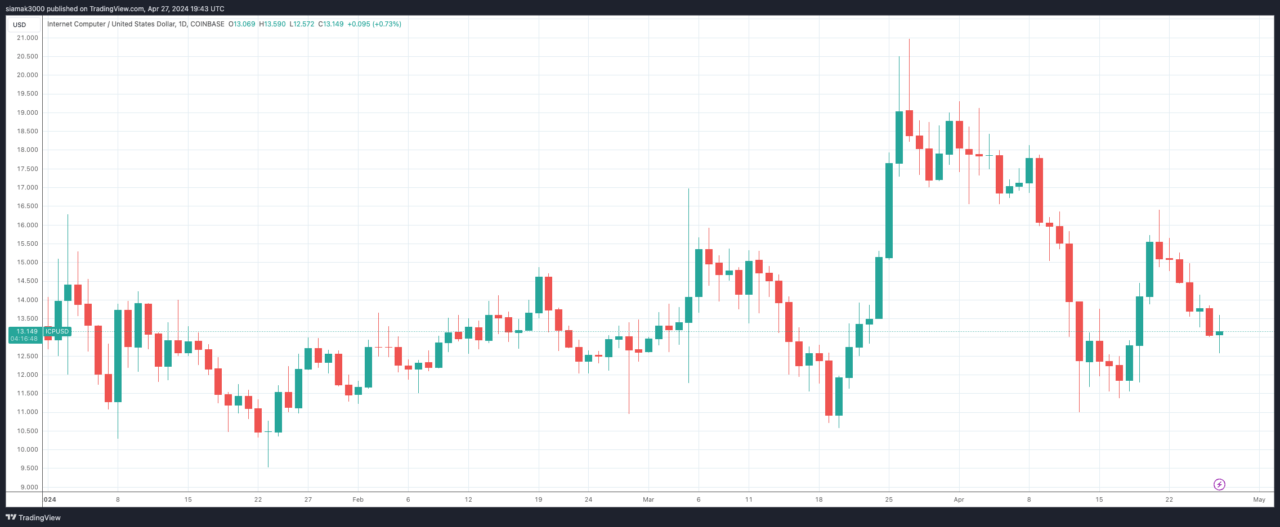Internet Computer ($ICP) is a blockchain network that facilitates the development of internet services via a secure, decentralized protocol. This platform operates on the Internet Computer Protocol (ICP) token, previously referred to as DFN. The ICP token is instrumental in redefining the web, facilitating app development, handling transaction fees, compensating network contributors, and participating in governance decisions concerning the network’s future. This utility token is crucial for the functionality and governance of the Internet Computer network.
According to IQ.wiki, the concept of Internet Computer originated from Dominic Williams, the chief scientist and founder of DFINITY, a non-profit organization. DFINITY has been pivotal in nurturing the Internet Computer project since its inception in early 2016 through to its launch. Before its release, DFINITY garnered approximately $121 million in funding through various rounds, including notable investments from Andreessen Horowitz and Polychain Capital, and an initial coin offering in 2017. In 2018, approximately $35 million worth of tokens were distributed via an airdrop.
Development of the ICP token fully commenced in 2019, with significant milestones such as the release of Copper leading up to its official rollout in May 2021. The launch marked the initiation of a blockchain capable of hosting web functionalities from hosting to storage and services independently of third-party interference. Similar to Ethereum, the Internet Computer supports decentralized applications (DApps) but utilizes an advanced form of smart contracts known as Canisters within its network. Williams has positioned the ICP token as the third significant innovation in blockchain technology, following Bitcoin and Ethereum, aiming to advance the internet into its next major phase.
The foundation envisions the Internet Computer as a tool to dismantle big tech monopolies and overhaul the conventional cloud service model, creating a more decentralized global network. This ambition reflects a broader goal to transform private internet infrastructure into an open, decentralized system that doesn’t solely depend on current security platforms and technologies. This new network aims to be sufficiently robust to support the foundational layers of the web, including emerging sectors like Web 3 and decentralized finance (DeFi) applications.
Williams recently shared his candid thoughts on the current state of the crypto and blockchain industry during an interview with The Block. According to Williams, many investors are being swayed by compelling narratives rather than genuine technological innovation. He estimates that around 95% of the blockchains in existence are “just junk,” with projects often presenting incomplete or misleading information about their products.
While acknowledging the utility of established blockchains such as Bitcoin, Ethereum, Solana, and Avalanche, Williams questions their ability to serve as the foundation for a scalable and decentralized internet that can be widely adopted by mainstream users. He argues that these platforms, which he refers to as “traditional blockchains,” process transactions sequentially, limiting their efficiency and potential for growth.
In contrast, Williams highlights the Internet Computer Protocol as a “third-generation” blockchain capable of scaling and computing more efficiently. He believes that this enhanced performance is crucial for building web3 platforms, such as on-chain social networks, that can compete with their centralized counterparts.
To illustrate the current inefficiencies in web3, Williams provides an example of the high costs associated with storing a simple 3-megabyte photograph on popular blockchains like Ethereum and Solana. He points out that such an action would cost $110,000 and take a week to upload on Ethereum, while on Solana, it would cost around $400.
Despite the protocol’s purported technical superiority, the price of the ICP token experienced significant volatility following its launch. After initially soaring to over $400 and achieving a market cap of more than $18 billion, the token’s value plummeted. However, the price has shown signs of recovery, particularly since the end of last year.
At the time of writing (7:45 p.m. UTC on April 27), ICP is trading at $13.15, down 0.9% in the past 24-hour period but up 131.1% in the past one-year period.

Featured Image via Internet Computer
 cryptoglobe.com
cryptoglobe.com